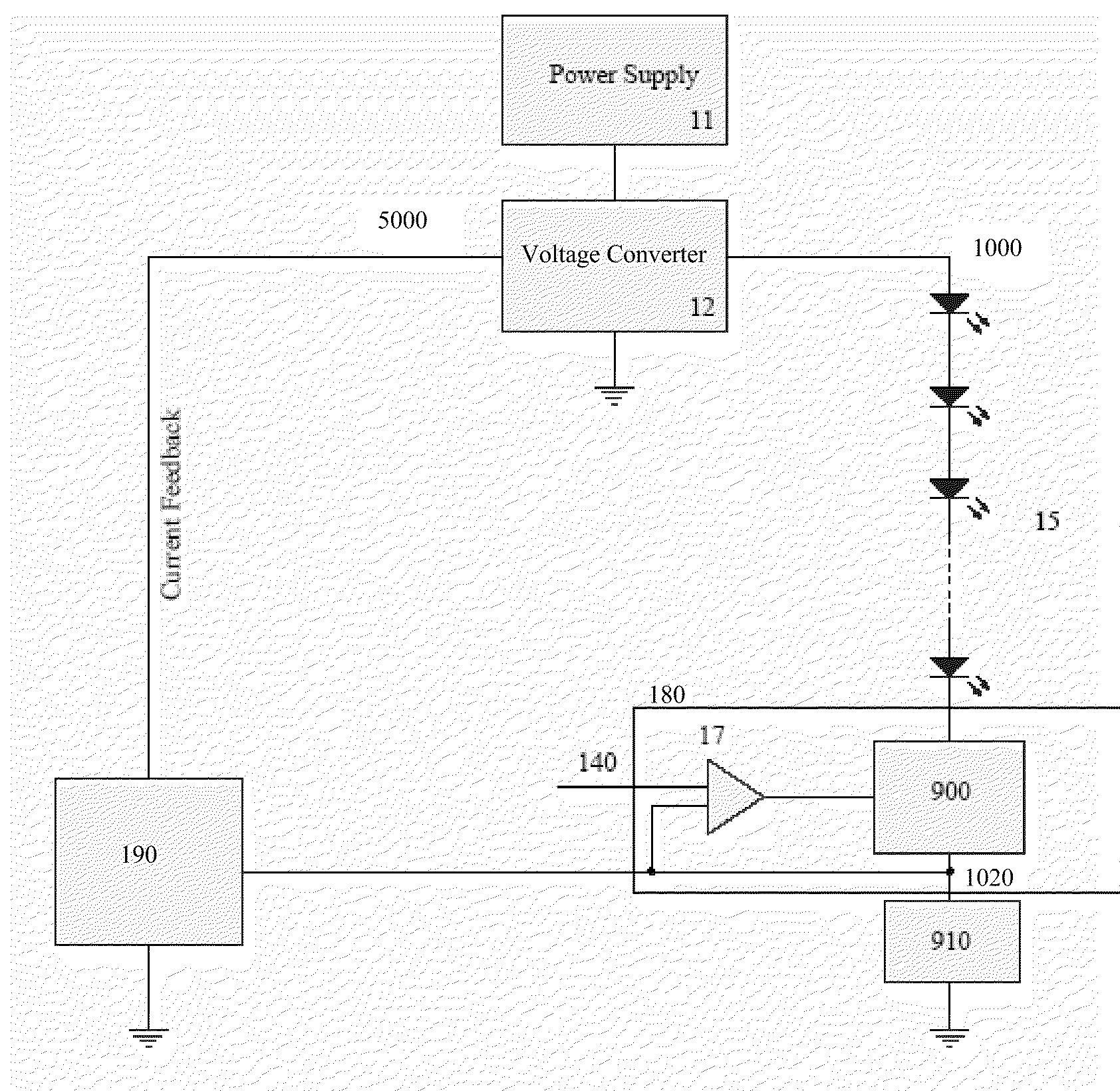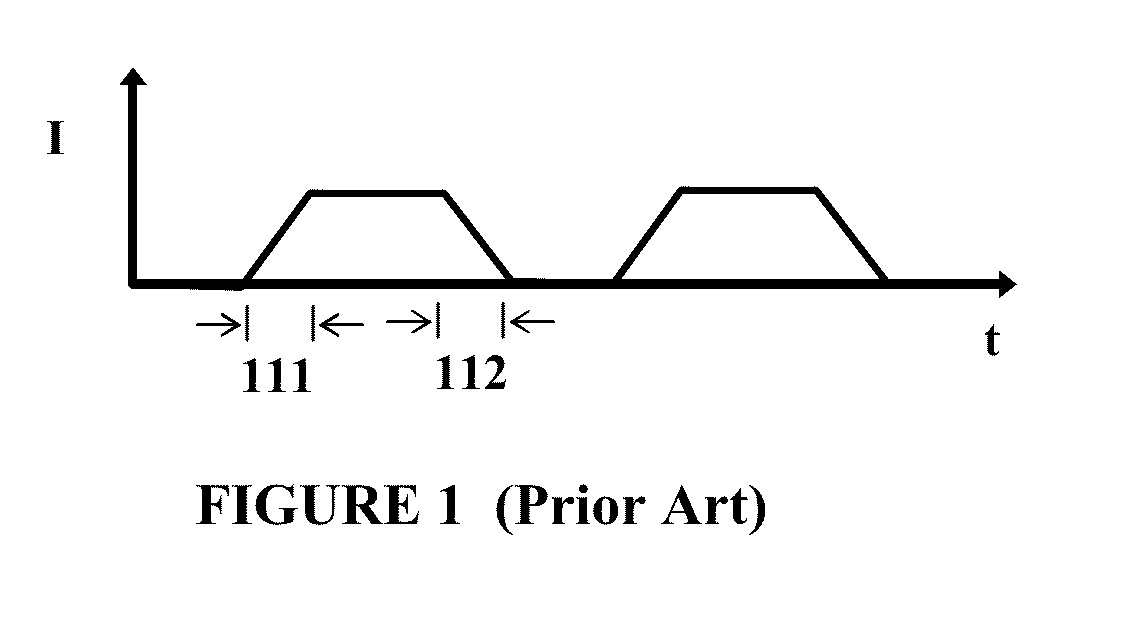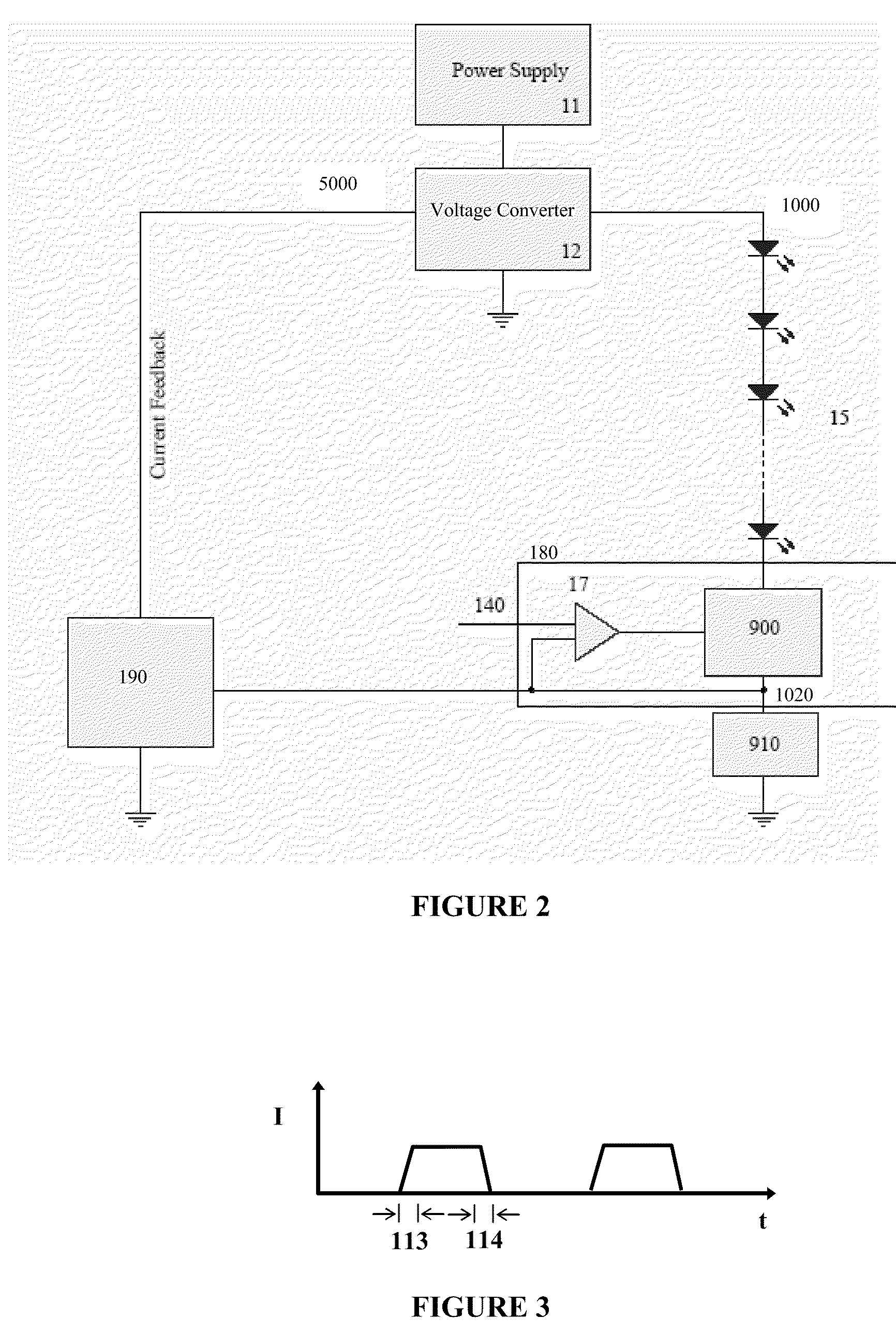Method and Apparatus for Controlling Current Supplied to Electronic Devices
a technology of electronic devices and current supply, applied in the direction of electric variable regulation, process and machine control, instruments, etc., can solve the problems of high power loss of linear constant current drive circuits, unsatisfactory mode of operation, and need special power electronic devices and diligent thermal managemen
- Summary
- Abstract
- Description
- Claims
- Application Information
AI Technical Summary
Benefits of technology
Problems solved by technology
Method used
Image
Examples
Embodiment Construction
Definitions
[0037]The term “power supply” is used to define a system comprising an input and an output for transforming a first form of electricity provided at the input, conditioning the first form of electricity into a second form of electricity, and providing the second form of electricity at the output. A power supply can accept a predetermined range of forms of electricity at the input and can condition the electricity into and provide a predetermined range of forms of electricity at the output.
[0038]The term “voltage converter” is used to define a system comprising an input and an output that can convert an input voltage of a first magnitude into an output voltage of a second magnitude, wherein the first and the second magnitude can be the same or different.
[0039]The term “electronic device” is used to define any apparatus whose level of operation is dependent on the form of supplied electricity. Examples of electronic devices include light-emitting elements, servo motors, and ...
PUM
 Login to View More
Login to View More Abstract
Description
Claims
Application Information
 Login to View More
Login to View More - R&D
- Intellectual Property
- Life Sciences
- Materials
- Tech Scout
- Unparalleled Data Quality
- Higher Quality Content
- 60% Fewer Hallucinations
Browse by: Latest US Patents, China's latest patents, Technical Efficacy Thesaurus, Application Domain, Technology Topic, Popular Technical Reports.
© 2025 PatSnap. All rights reserved.Legal|Privacy policy|Modern Slavery Act Transparency Statement|Sitemap|About US| Contact US: help@patsnap.com



